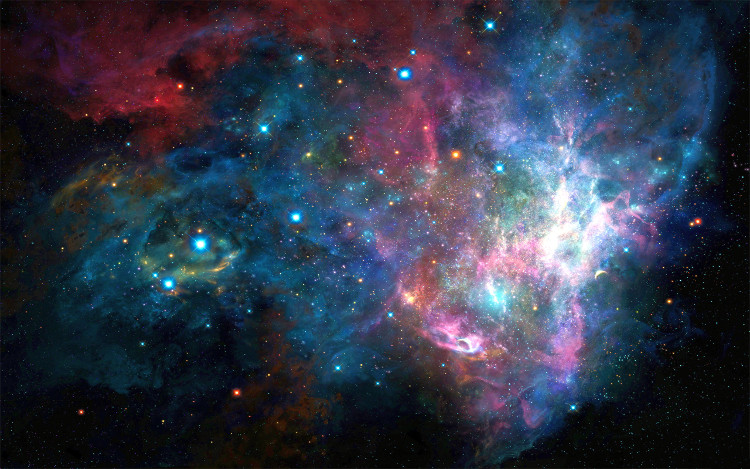How many galaxies in the universe?
Up to 2 trillion galaxies in the universe can be observed, 10 times more than previously predicted. "This is very surprising ." said Professor Christopher Conselice of the University of Nottingham.
The new study was conducted by Professor Christopher Conselice at the University of Nottingham and colleagues at the Leiden Observatory and the University of Edinburgh, during 15 years of working together.
The team looked at the density of galaxies in the universe at various stages and found that it seemed that the number of galaxies in the past few billion years must be at least 10 times greater than the numbers that were launched before. Most of them are small galaxies, difficult to observe.
"This is very surprising, since more than 13.7 billion years of cosmic development since the Big Bang, galaxies have evolved through the formation of stars and merged with other galaxies," she said . Conselice said: "The previous discovery has more galaxies, meaning that large mergers have occurred, reducing the amount of galaxies in the universe."

There are 2 trillion galaxies out of space.
Previously we still thought that the universe observed 100 billion galaxies - an estimated number recorded in 1990 based on the Hubble Telescope data. But better models and new tools that have been developed over the past 20 years show a more "busy" universe.
According to this latest study, there may be between 1 and 2 trillion galaxies out of space , and we can only observe a small part of it.
"We do not observe most galaxies, because they are very faint and far away. The number of galaxies in the universe is a fundamental question of astronomy that has not been answered, when 90% "The galaxies in the universe have not been studied. Who knows what interesting things it will be when we study these galaxies with the next generation of modern telescopes?" , Conselice adds.
This new estimate is an important consequence of galaxies that have evolved through various stages of the universe. The proportion of merged galaxies must be much higher than the first few billion years of the universe.
Astronomy is a science "expanding the horizon". As our device grows, we can look deeper and further into the universe. With every new progress, the universe is a very complex, bigger and more crowded place than we thought before.
- Set of three galaxies in the dawn of the universe
- Decoding adds a mystery of the universe
- 5 most impressive galaxies in the universe
- Discover 'living fossil' galaxies in the universe
- Detecting a group of 'ghost galaxies'
- The mystery of the dead galaxies
- Discover the birth of ancient galaxies
- Explain the causes of galaxies in the universe with bizarre shapes
- Detecting the galaxy seems to not exist
- The largest structure in the universe contains just 1,600 galaxies
- Close up of galactic conflict
- Compare the amount of human and galaxy cells in the universe
 Van Allen's belt and evidence that the Apollo 11 mission to the Moon was myth
Van Allen's belt and evidence that the Apollo 11 mission to the Moon was myth The levels of civilization in the universe (Kardashev scale)
The levels of civilization in the universe (Kardashev scale) Today Mars, the sun and the Earth are aligned
Today Mars, the sun and the Earth are aligned The Amazon owner announced a secret plan to build a space base for thousands of people
The Amazon owner announced a secret plan to build a space base for thousands of people